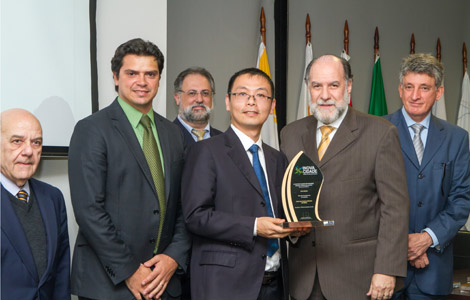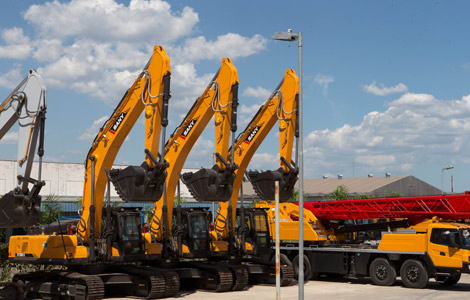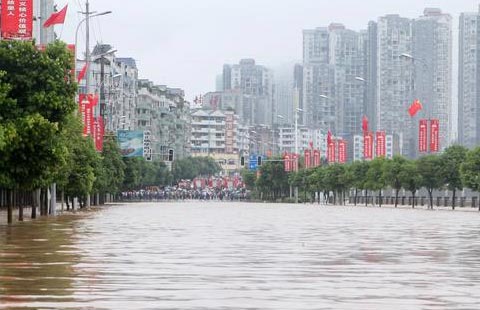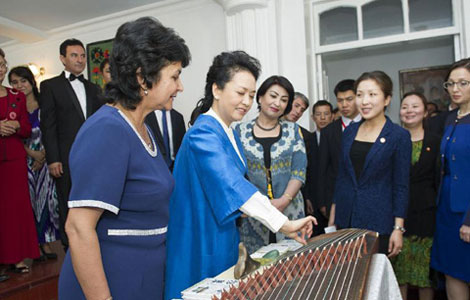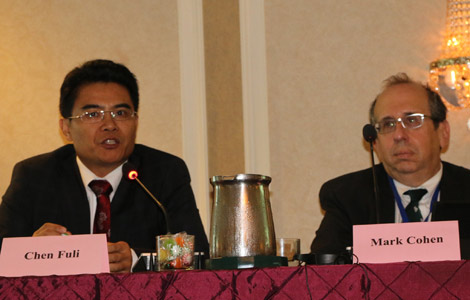Brazil needs to keep pace with the rise of 'China 2.0'
Updated: 2014-09-08 03:43
By JI YE in Rio de Janeiro(China Daily Latin America)
|
||||||||
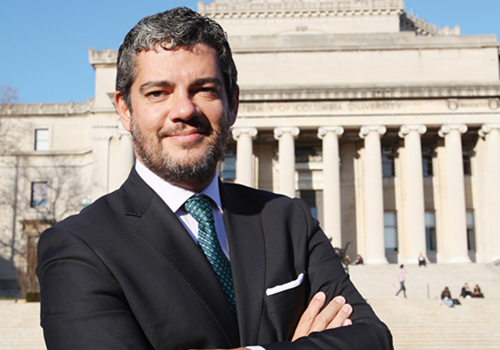 |
|
Marcos Troyjo is co-founder and co-director of the BRICLab at Columbia University, a special forum on Brazil, Russia, India and China, where he teaches international affairs. [Photo provided to China Daily] |
Brazil needs to develop a strategic vision to live with a new China. That's the conclusion of Marcos Troyjo, a Brazilian economist and co-director of the BRICLab at Columbia University.
Troyjo said in an interview in Rio de Janeiro on Sept 4 that China has entered a new stage, one he calls "China 2.0". In this stage, China can no longer rely on government investment and foreign trade to simulate its economic development as it did over the past 30 years following the country's reform and opening-up policies of 1978. Troyjo calls that period "China 1.0".
During that time, China has combined public-private partnerships, labor law, a cheap work force, a favorable approach to foreign capital and a light tax burden to become the largest manufacturing park in the world.
Troyjo who teaches international affairs at the BRICLab, a special forum on Brazil, Russia, India and China, said that Brazil's cooperation with China 1.0 helped meet the country's demand for capital and infrastructure development while exporting Brazilian advantages like agriculture and mineral resources.
In his opinion, the China´s new economic model is less about exports and government investment and more about strengthening its domestic market, enlarging imports, reducing its overproduction and focusing on the production of high value-added goods.
China is now Brazil's largest trade partner in the world and also its largest exporting and importing market. Trade volume between the two countries surpassed $90 billion last year and that figure is expected to increase this year. Brazil also enjoyed a trade surplus of $8.7 billion last year.
"Now China is entering China 2.0, then the Brazilian people start to think it's not good for Brazil. The fear is that China 2.0 will close the door of opportunities in terms of exports of agriculture and mineral commodities coming to China from countries like Brazil," said Troyjo, whose studies focus on development strategies, emerging markets, technological innovation and the political economy of globalization.
However, Troyjo doesn't think that is going to happen, and he believes China 2.0 will continue to be an excellent pathway for Brazil to achieve necessary resources it needs to lead a sound development.
"As income grows in China, there is going to be more consumption of food-related goods which will impact positively on the demand for Brazilian food products," Troyjo said.
"It's also true that the infrastructure in China will expand dramatically but there is still a lot to do. One of the ways China has tried to minimize the global crisis was to create the demand for bigger infrastructure projects. This is going to continue. Therefore there is a very big window of opportunity as well for the exports of mineral products."
According to Troyjo, the problem Brazil facing is that by having the same opportunities as before Brazil should have done more to help strengthen trade with China.
"It's up to Brazil," he said. "Brazil has to do the homework. Brazil has to use the bilateral trade with China, especially the surplus it has, to undertake the necessary domestic reforms to become more competitive and attractive towards China."
Troyjo pointed out that Brazil faced the last two decades with a "lantern on the stern" (and sometimes the lantern was off), while China projected a "lantern aimed at the future." China drew a longer-term strategy. The cat, no matter its color, would hunt mice. It chose a model. It stuck to it while Brazil didn´t, he said.
Bilateral trade has increased at a fast speed in the past decade. But that is mostly due to China's dramatic infrastructure and consumer market growth, and to the ensuing demand for mineral and agricultural commodities in which Brazil presents clear advantages.
As an example, Troyjo said that one ton of Brazil's exports to China are around $200. One ton of Chinese exports to Brazil exceed $2,000. He suggested that Brazil should increase exports of higher value-added goods to China.
In essence, Troyjo reckoned that BRICS countries like Brazil and China should be diverted to the tech-intensive sectors, where the future of the global economy should be.
"Throughout China 1.0, one of the central competitive factors was cheap labor. But right now China is building competitive advantages not based on cheap labor, but on knowledge and technique. I believe China is fully aware of the importance of this process," he said.
Brazil´s advantages of today are still mainly in mineral and agricultural commodities, and therefore the country should move away from this and start to create competitive advantages of tomorrow such as expanded research and development (R&D), patents and new products.
Troyjo also said Brazil should promote three reforms in order to keep up the pace. The first is political reform. The second is to simplify its current tax structure, which is enormous and complicated. The third is updating the labor legislation, which is very old and dates back to the 1930s.
He is an op-ed columnist for Folha de S. Paulo, Brazil´s biggest circulation newspaper, and a regular commentator for global media outlets such as Latin Business Chronicle and the Financial Times.
Most Viewed
Editor's Picks

|

|

|

|

|

|
Today's Top News
Chinese president arrives in Maldives for state visit
Boosting innovation in Latin America
China, LatAm see rosy trade prospect
US tourist in DPRK gets 6 years of hard labor
China, Central Asia unveil new energy cooperation
Alibaba roadshow bodes well for record-breaking IPO
Chinese plant joins US firm in fuel ingredient production
CITIC braces for legal battle in HK
US Weekly

|

|
